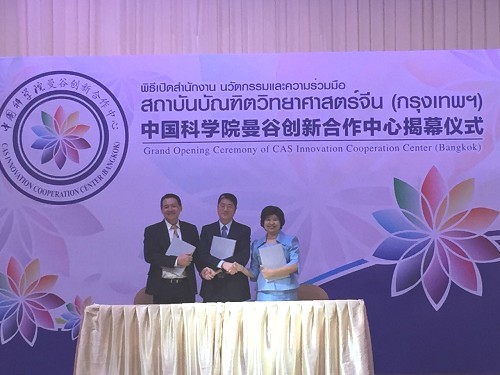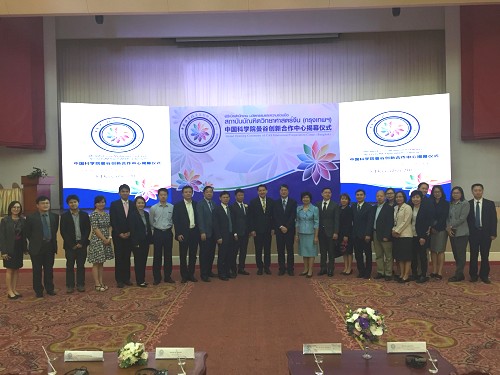Prof. LIU Shuangjiang, Director-General of Institute of Microbiology, Chinese Academy of Sciences (IMCAS), Dr. Somvong Tragoonrung, National Science and Technology Development Agency by National Center for Genetic Engineering and Biotechnology (BIOTEC) and Dr. Luxsamee Plangsangmas, Governor of Thailand Institute of Scientific and Technological Research (TISTR) signed MoU on Thailand-China Joint Laboratory on Microbial Biotechnology on the Opening Ceremony of CAS Innovation Cooperation Center (Bangkok) on December 8, 2017.
IMCAS, BIOTEC and TISTR agreed to collaborate on the research and development related to microbial biotechnology and to conduct capacity building on training, visiting scientists, PhD students, etc. The joint laboratory is to establish a long-term cooperation platform between the two countries and build a stable and cooperative relation of mutual trust. Establishing China-Thailand Joint Laboratory on Microbial Biotechnology will greatly promote cooperation between China and Thailand in the field of microbial strains preservation, identification and function study.
Dr. Suvit Maesincee, Minister of Ministry of Science and Technology (Thailand), said the cooperation would greatly promote cooperation between China and Thailand and help the development and industrialization of microorganisms in both countries, meanwhile providing support for the microorganisms used in medicine, industry and other fields in order to solve the major problems concerning peoples’ health, environment, resources, etc.
Prof. ZHANG Jie, Vice President of CAS, also stated the importance of cooperation between CAS institutes and institutes, universities in Thailand. Mr. LYU Jian, Ambassador of People’s Republic of China, introduced China’s “One Belt One Road” Scientific Innovation Plan and China would run 50 joint labs in the next five years and receive 2,500 foreign young scientists to conduct short-term research work in China.
The joint lab will also help promote bilateral cultural and academic exchanges and play a positive role in promoting Sino-Thai research capacity and personnel upgrading of technology management.

